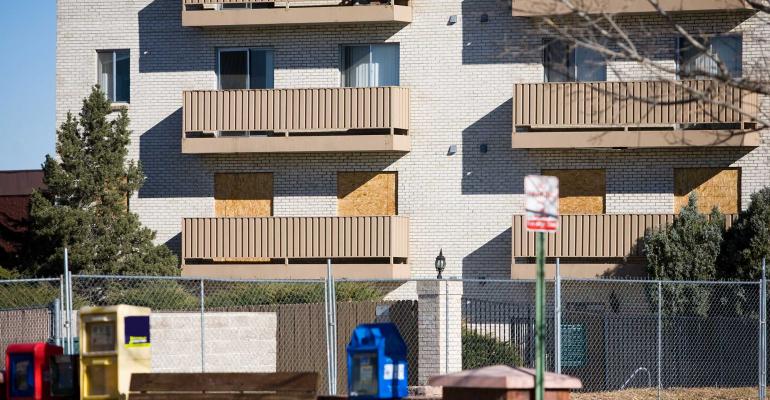Capital is lining up for distressed assets, and many buyers are also hoping for some pricing adjustments in their favor.
The vast majority of respondents (88 percent) anticipate that loan delinquency rates in the multifamily sector will rise compared to 10 percent who predict no change and 2 percent who think delinquencies could fall. Overall, the average expectation is an increase of 4.5 percent in delinquency rates.
“There are certainly those investors who are hitting pause and are very nervous,” says Sebastian. “At the same time, in the other camp are those people who are getting ready for huge market opportunities.”
The unfortunate side effects of this are going to be business plans that fail, foreclosures and properties that have to be sold at a discount. Although that hasn’t started happening yet, and it probably won’t until early next year, there are a lot of investors that are getting ready to take advantage of those situations, he says.
One group planning to be an active buyer in the coming year is Dalzell Capital.
“We are definitely looking to grow our portfolio, but our growth trajectory and business plan has changed, because the opportunities in front of us are going to be extremely different than the opportunities that we created over the past few years,” says Christian Dalzell, managing partner at Dalzell Capital. The former Starwood Capital Group exec founded Dalzell Capital in 2017 and has since acquired nine properties in Philadelphia that include 300 apartment units and 15,000 square feet of commercial space.
Although the firm is actively looking for buying opportunities, the company hasn’t closed on any new deals since its last acquisition in December.
“Investors are just not going to buy anything unless they feel like they are being properly compensated,” says Dalzell. “I’m not sure what properly compensated means today, but I know that it means more than they have been paid over the last few years.”
Once sellers get their arms around that and there is some reduced pricing, that’s when trades will resume. However, that is not likely to happen in earnest in multifamily until early 2021, he adds.
A majority of respondents (63 percent) expect cap rates to increase over the next 12 months compared to 28 percent who predict a decrease and 9 percent who think cap rates will remain the same. The fact that respondents are anticipating an increase in cap rates is not surprising, as a majority have been anticipating an increase for the past three years. However, the reasons for that expected increase are likely very different. It is also interesting to note that 28 percent of respondents predict that cap rates could decrease, which is the highest level in the seven-year history of the survey. Conventional wisdom says that with less tenant demand and rent growth dropping, cap rates should rise.
“You are starting to see that a little bit, but the pushback is the low interest rates,” says Berzack. Borrowers can get a 10-year interest only loan from Fannie Mae at between 3 and 3.5 percent, depending on the quality and location of the property. “That’s allowing people to pay really aggressive numbers. So, things are not affecting pricing as much as one would think,” he says. Cap rates are moved a little higher, but not significantly, he adds. Overall, survey respondents predict a slight increase in cap rates over the next 12 months at an average of 20 basis points.


